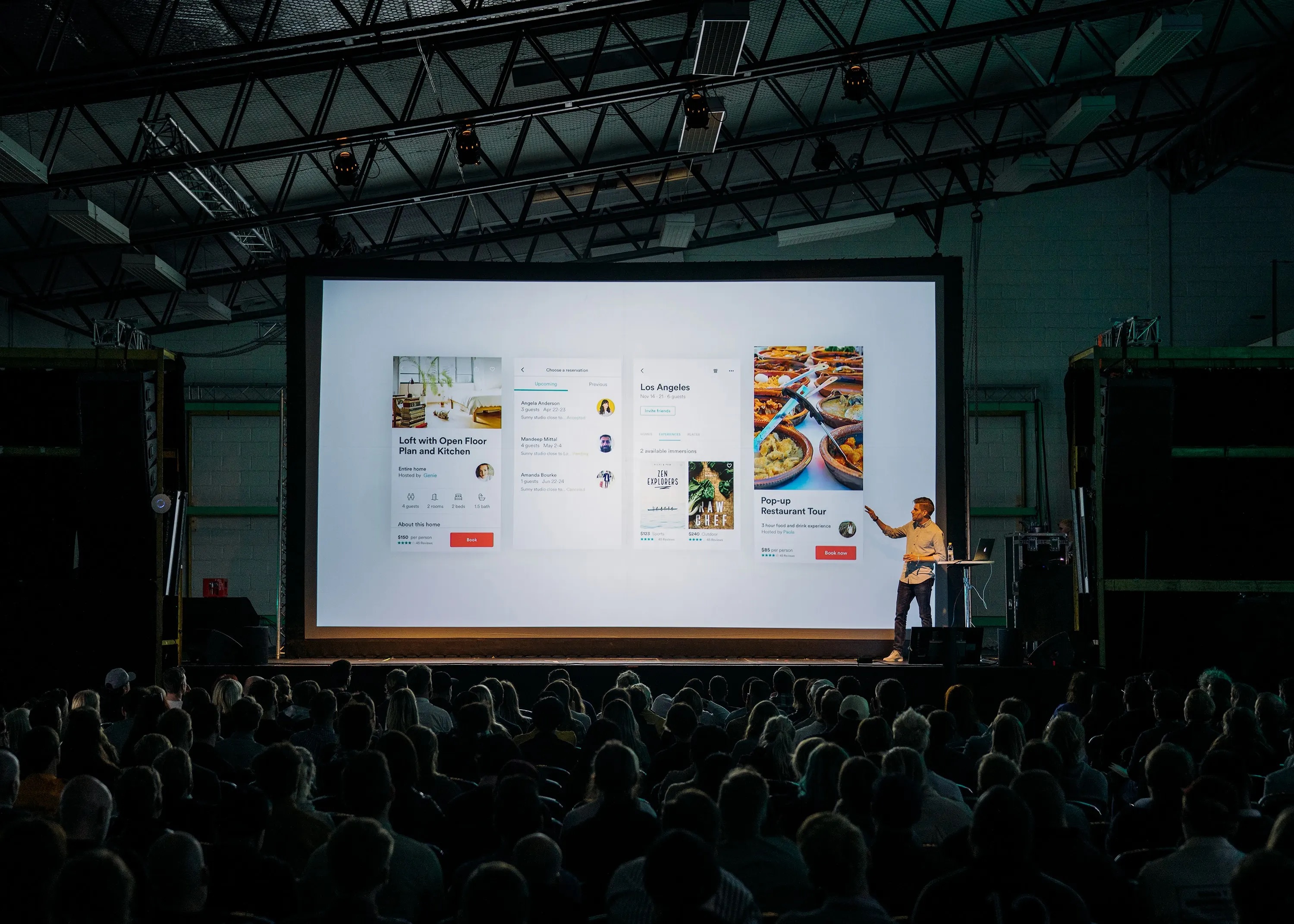

General Sessions Series: Amp up your General Sessions with These Tips & Tricks

It’s best to think of your General Session as having a conversation. It's not an opportunity to simply bombard your audience with information, but to engage them in a productive and exciting conversation. Consider how you could make that communication flow both ways.
Your Room’s Ready, Now Make Sure Everything Else Is Too
Don’t Forget Rehearsals and Final Checks.
Rehearsals
Speaker skill level does not negate the need for rehearsals. Each tech delivery and communications system is different. Will they have a mic? What kind? Who will coordinate media and questions? These details deserve a quick walk-through. Schedule this with your speaker(s) early on so they factor it into their travel plans.
Meeting Design Tip:
Rehearsal should be non-negotiable. Sometimes speakers feel that rehearsal is a waste of time, but even rock stars perform soundchecks.
Schedule time for this with your speakers, your sound and audio team and any other tech professionals.
Rehearsals should include sound and tech checks, too. Remember things sound louder without bodies in the room.
Have your tech professionals present and available to give feedback on sound and make adjustments accordingly.
Anyone who will be on stage speaking (or even introducing) should be available for a quick run-through.
On-site Status and Event Prep Meetings
Hold pre-conference meetings with all essential staff including catering, AV, tech, etc. For those present on-site, meet there. Others can be conferenced in as required. Whenever possible, go through physical walk-throughs of what will take place the day of your event. If that is not possible, walk through the pieces verbally. Someone should own every piece for a smooth show. Create a contingency plan for "what-if" scenarios, so that everyone is prepared and aware of what to do if things do not go according to plan.
Decisions that Will Mean a Slow Death for Your Event
Blame high budget events or personal virtual assistants, but your audience is used to tech and personalization at this point. To ignore this fact will surely mean alienating some attendees. Here are a few event planning mistakes you can’t afford to make:
1. Going cheap on tech. While you needn’t break the bank on it, you must be aware that most attendees are walking around with several hundred dollars worth of computing devices in their pockets. Occasionally they might even use one to make a phone call. If you go cheap on tech, it shows and it affects attendee experience. The bar is set fairly high at this point.
2. Forgetting to mention next year’s (or next month’s) event. Always capitalize on current interest and help funnel it to your next event. Find ways to connect the general session experience to the rest of your event. Get them while they are amped up and excited. Make sure you deliver on the promise you just made in your general session.
3. Not applying data or other things you learned over the course of your event. Don’t collect it if you don’t use it to improve and offer more of what your audience wants.

